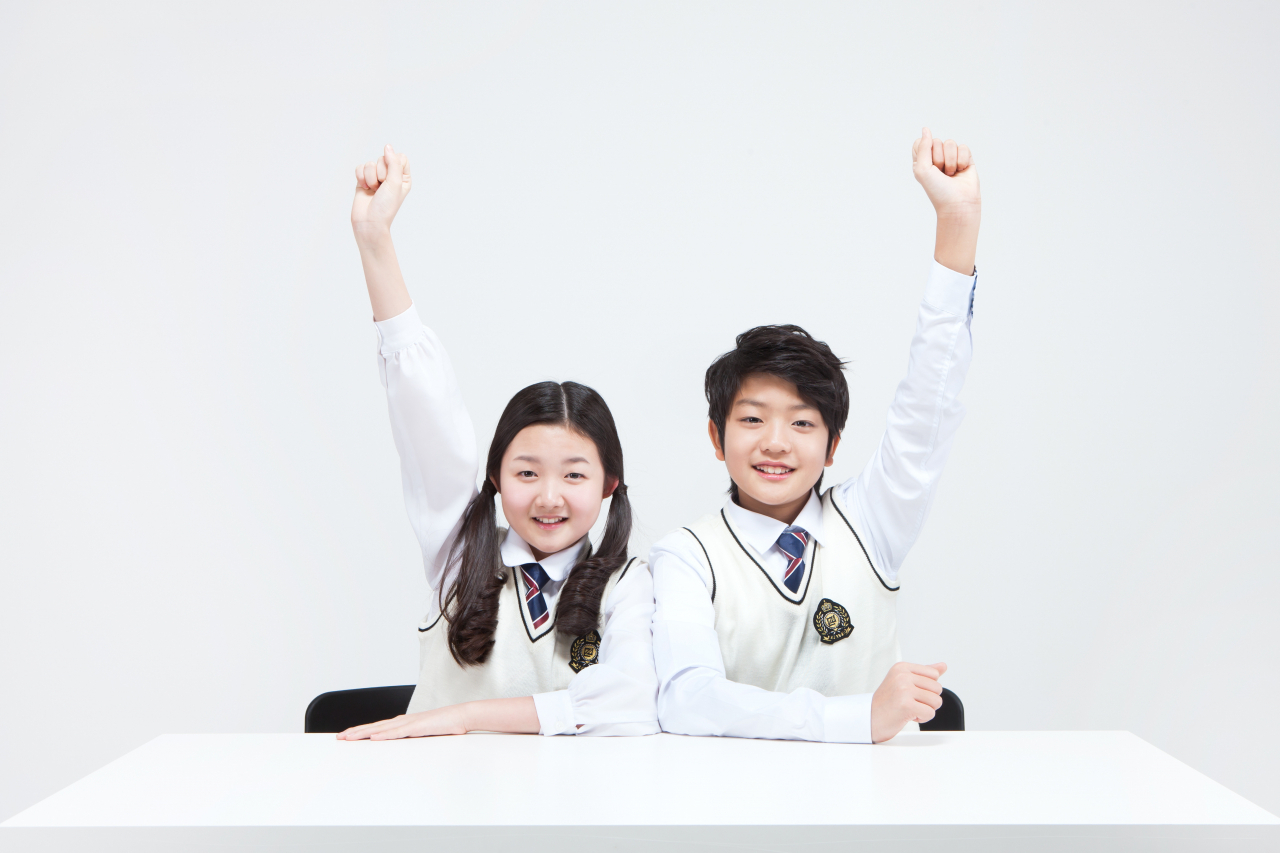
When talking about education, South Koreans often attribute their rising spending on children’s lessons outside school to an undemanding public education.
My daughter, who went to a Singaporean public primary school for a year and half, and now goes to a Korean public elementary school, said the latter is less work and more fun.
I did tell her once that I heard Korean kids do much of their studying at hagwon, or cram schools, and that I agree it is strange, but that’s how things are here.
Friends with older children have half-jokingly told me school is where kids go to socialize. Some parents, I heard, wish schools gave less homework because they prioritize hagwon assignments.
Compared to Singapore, where primary school starts around 7:30 a.m. even for first graders (the earliest to arrive get stickers) and sixth graders sit for the Primary School Leaving Exam, the perceived magnitude of which is almost as grave as Korea’s college entrance exam known as Suneung, Korean elementary schools may be less challenging.
Elementary schools here have shorter school hours, and have plenty of periods during which kids make videos on how to prevent school violence, listen to instructors from outside on forestalling child abuse, or answer a survey on how they use smartphones and the internet.
In an annual open class I attended at my daughter’s school last week, -- the subject was Korean language -- the children were asked how one would speak in certain situations, or to different people like a foreigner or a grandmother. Some read out loud stories of their experiences, and classmates shared what kind of feelings they felt were expressed.
Public schools are a direct indicator of what kind of citizens a government seeks to nurture. What I liked about the Singapore system is that it placed great emphasis on fostering good citizens who are always ready to help each other.
From what I have observed so far, Korean public schools seem to say, number one, it would be ideal if you figure out what you want to do in future by the first year of high school (as it would help with early admission to college), so keep thinking about it. Number two, no matter what you do, communication skills are important.
By all means, learning different subjects and doing group activities to find what interests you the most and what you can excel in, and knowing how to effectively communicate your knowledge and ideas are the primary goals of education.
Compared to decades ago, the middle school grading system has also become less quantitative and less competitive.
Back when I was in middle school, after midterms and final exams, we got pieces of paper with our scores and ranking within the class. But now, Korean middle schools do absolute grading -- or treat rankings or percentiles like "state secrets,” as parents say -- until graduation.
I agree with the overall direction of public schools that stresses career exploration, discussions, projects and group work.
The only problem is, the reality of education outside schools is starkly different.
A collective feeling of insecurity and the fear of falling behind drive parents to send their kids to multiple private academies and study years ahead of the school curriculum to get ahead.
Daechi-dong, the mecca of hagwon in Seoul’s Gangnam and the dog-eat-dog trendsetter in the nation’s private education industry, preaches to parents and kids that all the bright students are doing it and from a young age in pursuit of the handful of highly prized careers – those in medicine, dentistry, Korean traditional medicine, or pharmacy.
How should or could public education help address this largely hagwon-induced anxiety? Would doing some of what cram schools do help?
For those who think it would, one of the things public schools have tried since the early 2000s was streaming by subject -- teaching students subjects like English and math in separate classes sorted by their proficiency levels. Some middle and high schools still do such tracking.
But did this make those who blame public education happy?
Not really. A lot of schools have stopped streaming due to complaints from pupils and parents. An online search shows research results on its effects vary -- some studies say it helped only those in the middle group, and some say it wasn’t effective for any of the groups.
No matter what schools do, someone will complain, and most schools, like the beacons of democracy they are, will succumb. The current state of schools and hagwon is what Koreans have come tacitly to agree upon over the decades.
Apparently, there are many Koreans with a strong desire to get ahead of others, an obsession that the hagwon industry has helped spread like wildfire, but such emulous desires are something public schools by their nature cannot fulfill.
South Koreans last year spent 26 trillion won ($20 billion) on outside lessons for school-age children, the highest amount ever. The education minister said the government will do its best to help reduce it. It announced last week that it will increase support for sports clubs and activities in schools -- a move I highly welcome.
In a country where the top 20 university departments with the highest cut-off points for admission are uniformly those of medicine, I hope public schools succeed in educating children to find their true aptitude and learn how to grow into happy individuals.



















![[Today’s K-pop] Treasure to publish magazine for debut anniversary](http://res.heraldm.com/phpwas/restmb_idxmake.php?idx=642&simg=/content/image/2024/07/26/20240726050551_0.jpg&u=)